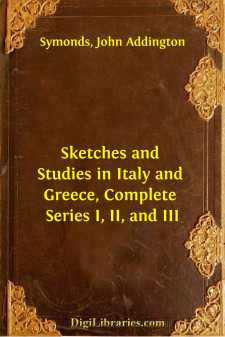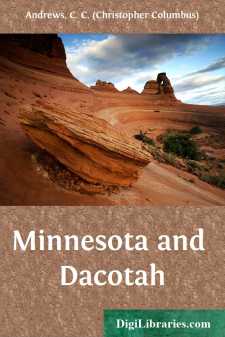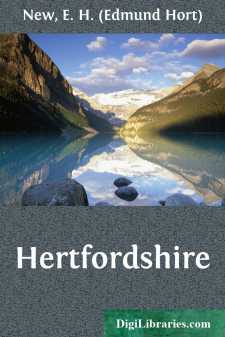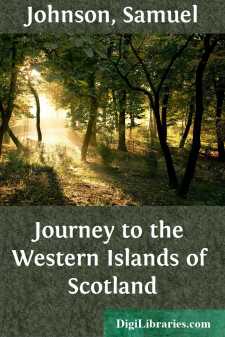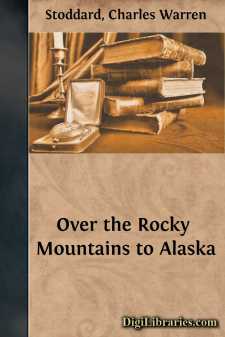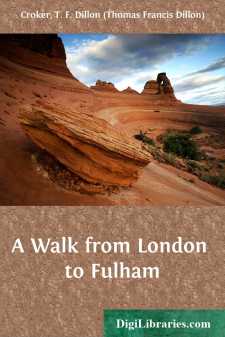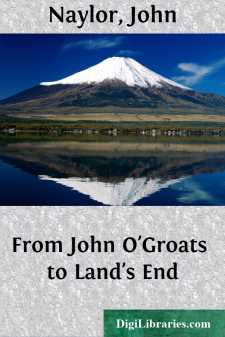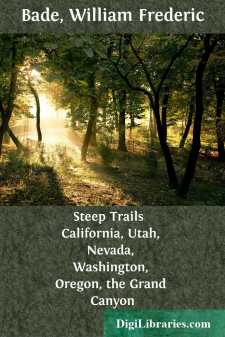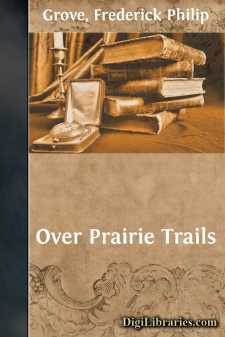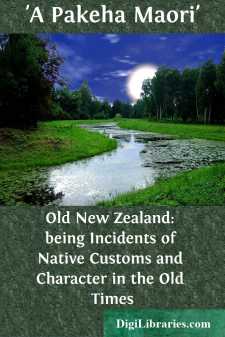Travel
- Africa 29
- Alaska 3
- Asia 46
- Australia & Oceania 26
- Canada 31
- Caribbean & West Indies 5
- Central America 1
- Europe 151
- General 39
- Maps & Road Atlases 1
- Mexico 10
- Middle East 18
- Polar Regions 7
- Reference 11
- Restaurants 1
- Russia 6
- South America 16
- United States 71
Travel Books
Sort by:
Of all the joys in life, none is greater than the joy of arriving on the outskirts of Switzerland at the end of a long dusty day's journey from Paris. The true epicure in refined pleasures will never travel to Basle by night. He courts the heat of the sun and the monotony of French plains,—their sluggish streams and never-ending poplar trees—for the sake of the evening coolness and the gradual...
more...
ST. CLOUD TO ST. PAUL. Importance of starting early— Judge Story's theory of early rising— Rustic scenery— Horses and mules— Surveyors— Humboldt— Baked fish— Getting off the track— Burning of hay stacks— Supper at St. Anthony— Arrival at the Fuller House. ST. PAUL, October, 1856. I WAS up by the gray dawn of the morning of yesterday, and after an early but excellent breakfast,...
more...
INTRODUCTION I. Situation, Extent and Boundaries Hertfordshire, or Herts, is a county in the S.E. of England. On the S. it is bounded by Middlesex; on the S.W. by Buckinghamshire; on the N.W. by Bedfordshire; on the N. by Cambridgeshire; on the E. by Essex. Its extreme measurement from due E. to W., say from Little Hyde Hall to Puttenham, is about 38 miles; from N. to S., from Mobb’s Hole at the top...
more...
by:
Samuel Johnson
INCH KEITH I had desired to visit the Hebrides, or Western Islands of Scotland, so long, that I scarcely remember how the wish was originally excited; and was in the Autumn of the year 1773 induced to undertake the journey, by finding in Mr. Boswell a companion, whose acuteness would help my inquiry, and whose gaiety of conversation and civility of manners are sufficient to counteract the...
more...
Chapter I.Due West to Denver. Commencement week at Notre Dame ended in a blaze of glory. Multitudes of guests who had been camping for a night or two in the recitation rooms—our temporary dormitories—gave themselves up to the boyish delights of school-life, and set numerous examples which the students were only too glad to follow. The boat race on the lake was a picture; the champion baseball...
more...
The late eminent genealogist, Sir W. Betham of Dublin, Ulster King-at-Arms, well known as the author of numerous works on the Antiquities of Ireland, and Mr. Richard Sainthill, an equally zealous antiquary still living in Cork, were two of the most intimate friends and correspondents of the late Mr. Crofton Croker. The first-named gentleman drew up an elaborate table tracing the Croker pedigree as far...
more...
by:
John Naylor
HOW WE GOT TO JOHN O' GROAT'S Thursday, September 7th. It was one o'clock in the morning when we started on the three-mile walk to Warrington, where we were to join the 2.18 a.m. train for Glasgow, and it was nearly ten o'clock when we reached that town, the train being one hour and twenty minutes late. This delay caused us to be too late for the steamboat by which we intended to...
more...
I. WILD WOOL Moral improvers have calls to preach. I have a friend who has a call to plough, and woe to the daisy sod or azalea thicket that falls under the savage redemption of his keen steel shares. Not content with the so-called subjugation of every terrestrial bog, rock, and moorland, he would fain discover some method of reclamation applicable to the ocean and the sky, that in due calendar time...
more...
ONE. Farms and Roads At ten minutes past four, of an evening late in September, I sat in the buggy and swung out of the livery stable that boarded my horse. Peter, the horse, was a chunky bay, not too large, nor too small; and I had stumbled on to him through none of my sagacity. To tell the plain truth, I wanted to get home, I had to have a horse that could stand the trip, no other likely looking...
more...
by:
A Pakeha Maori
CHAPTER I. Introductory. — First View of New Zealand. — First Sight of the Natives, and First Sensations experienced by a mere Pakeha. — A Maori Chief's Notions of Trading in the Old Times. — A Dissertation on "Courage." — A few Words on Dress. — The Chief's Soliloquy. — The Maori Cry of Welcome. Ah! those good old times, when first I came to...
more...


